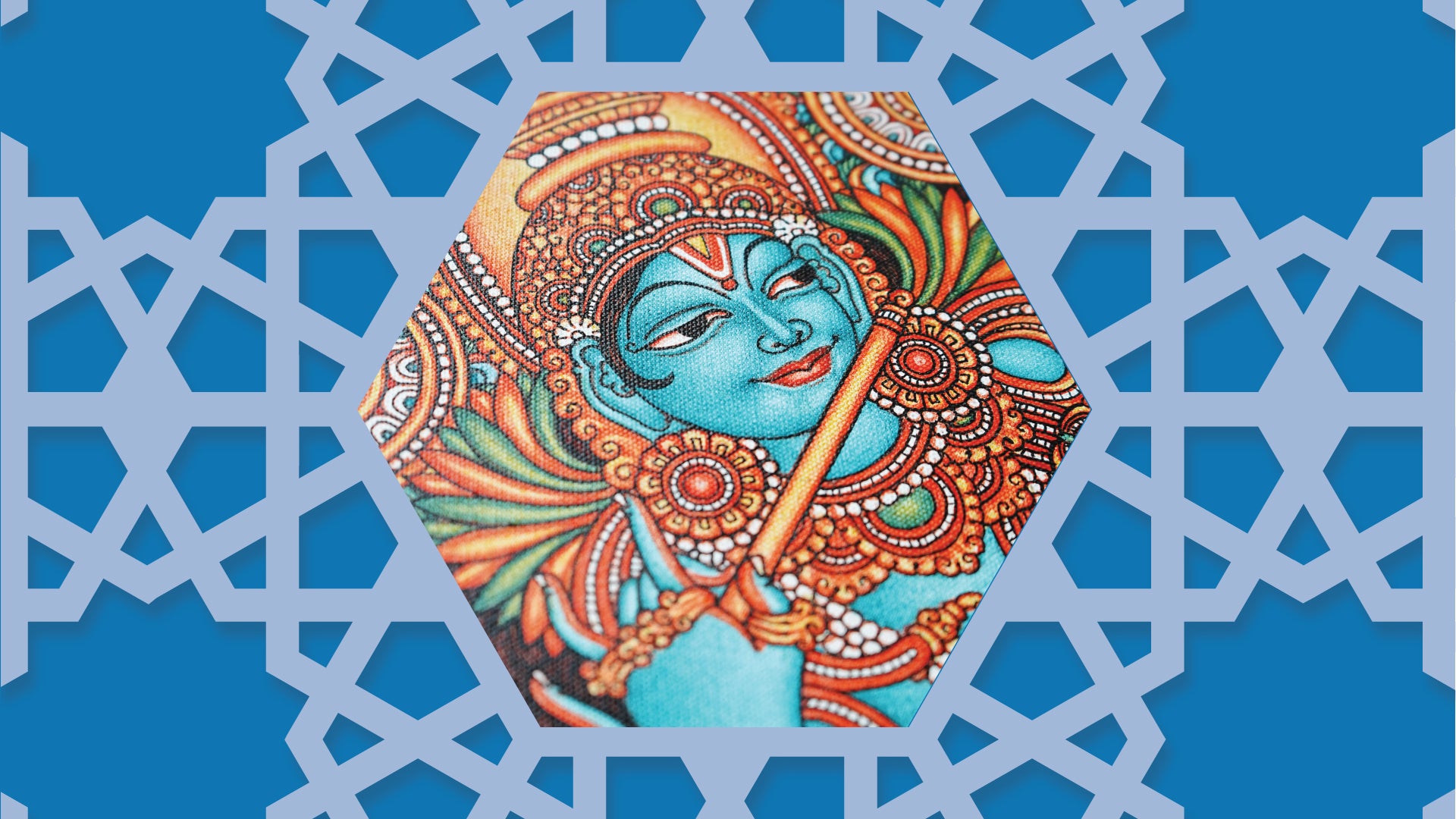Krishna's Janmashtami: A Festival of Devotion and Joy

As the gentle breeze carries the promise of Janmashtami, we are thrilled to unveil an extraordinary journey into the world of art and spirituality – #KrishnaConsciousArt. This isn’t just about paintings; it’s a profound exploration of devotion and creativity entwined. In celebration of Lord Krishna’s divine birth, Culturati presents a collection that transcends canvas and pigments, inviting you to delve into the stories and symbolism that make each stroke a sacred narrative.
The Divine Charms of Lord Krishna: A Journey into His Life and Teachings
The heavens were preparing for the birth of a divine child who would bring light, wisdom, and love to the world and whose life and teachings will captivate the minds and hearts of millions - Lord Krishna. He is believed to have graced the earth with his presence several millennia ago, during the Dwapara Yuga, a period of great significance in Hindu cosmology.
Significance Of Lord Krishna
The story of Lord Krishna is deeply ingrained in Indian mythology. He was born on the eighth day (Ashtami) of the dark fortnight in the month of Bhadrapada (August-September) in the sacred city of Mathura, to King Vasudeva and Queen Devaki. As Vasudeva carried Krishna out of the jail where they were captivated, a torrential rainstorm raged, and the Yamuna's waters surged. Undaunted, Vasudeva stepped into the river, and a miraculous event unfolded. The river parted, allowing him to cross to the opposite bank, where he found a safe haven in the village of Gokul. In the stillness of the night, Vasudeva gently placed Lord Krishna beside Yashoda's sleeping form and returned to the prison with Yashoda’s baby girl. Krishna’s birthplace, now known as the Krishna Janmabhoomi Temple, continues to be a revered pilgrimage site.
Lord Krishna is revered as the complete embodiment of divinity, encompassing both human and divine qualities. His life symbolizes the triumph of good over evil, and his teachings provide invaluable guidance for leading a righteous and fulfilling life. Lord Krishna's alluring charm, wisdom, and devotion continue to inspire people of all ages and backgrounds.
Bhagavad Gita: The Song of the Divine
The birth of Lord Krishna marked the dawn of a new era. One of the most revered texts in Hindu philosophy, the Bhagavad Gita, is a conversation between Lord Krishna and the warrior Arjuna. Here, Krishna imparts profound spiritual wisdom, touching upon subjects such as duty (dharma), destiny (karma), and the path to spiritual enlightenment. His teachings remain a guiding light for seekers of truth and wisdom.
Lord Krishna imparts timeless wisdom on the path to righteousness, self-realization, and devotion. His teachings emphasize the importance of selfless action, detachment, and unwavering faith in the divine.
Krishna Leela
Krishna's divine love story with Radha is celebrated for its unparalleled devotion and spiritual symbolism. Their union symbolizes the profound connection between the individual soul (Atman) and the Supreme (Brahman).

Krishna's life was replete with divine pastimes and miracles. From lifting the mighty Govardhan Hill to engaging in the enchanting Raas Leela dance with the Gopis, each story reveals a facet of his divinity and profound love for his devotees. His magnetic personality, melodious flute-playing, and captivating smile have been sources of inspiration for poets, artists, and devotees throughout history.
Festivals and Celebrations
The birth of Lord Krishna is celebrated with great fervour during Janmashtami. The story of Janmashtami is deeply rooted in Hindu mythology and scriptures, primarily the Bhagavad Gita and the Mahabharata. Lord Krishna's birth is considered a divine intervention to protect the world from the evil king, Kansa, who was his maternal uncle.
There are various customs and traditions people follow to celebrate this joyous occasion.
Fasting and Prayers: Devotees observe fasts on Janmashtami, abstaining from grains and lentils. They break their fast only at midnight, the time when Lord Krishna is believed to have been born. Special prayers and devotional songs are sung throughout the day in temples and homes.
Dahi Handi: One of the most iconic traditions associated with Janmashtami is the Dahi Handi (curd pot) festival. It reenacts Lord Krishna's childhood habit of stealing butter. A clay pot filled with curd, butter, and other goodies is suspended high above the ground. Teams of young people form human pyramids to reach and break the pot, emulating the playful spirit of Lord Krishna.
Ras Leela: In many parts of India, especially in the northern regions like Mathura and Vrindavan, elaborate re-enactments of Lord Krishna's childhood pranks and his Raas Leela (divine dance with the Gopis) take place. These performances are a visual treat for devotees and tourists alike.
Decorations: Homes and temples are adorned with colorful flowers, rangoli and miniature footprints of Lord Krishna leading to the main idol. Cradles with a figurine of baby Krishna are also decorated as a part of the celebration.
Devotional Music and Dance: Bhajans (devotional songs) and kirtans (spiritual chants) are sung with fervour in temples. These musical expressions of devotion create an atmosphere of joy and spirituality.
Janmashtami is a celebration of the divine, a reminder of the eternal wisdom imparted by Lord Krishna, and a joyous occasion that unites people in devotion and festivity.


